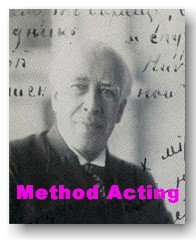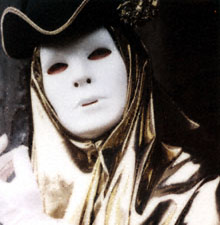Time again -- the public is the product of theatre!
Without experiencing the show you can't have it!
Yes, if you have your own public, you made it -- you have your own theatre. Your theatre has it own style.
I wrote about it in Taganka Files.
Public is more than one...
The word "public" is abused, but I say to my students:
Listen! They are always right! There is no stupid public, only misplaced public.
[old text]
LOOKING AS LABOR: THE ECONOMY OF SIGHT
Economics of Spectatorship
Spectator as costumer, consumer, recipient, producer:
"Theatre was born on market square." (Pushkin)
Life (time) as capital (see TIME).
Viewing time[1] as the commodity? The labor time of the
viewer (human labor time).
Meanings produced (provoked) by looking: if media is the
message, I place image within the existing communication (adding,
not "independently" creating new meanings. Could I say, I
discover what they are ready to see). I format the unborn
messages? The meeting of two in the middle.
"Vision becomes a form of work." (59)
We're making profit from other people looking!?
Self-consuming: Production which creates consumption.
Visual economy = new methods for the extraction of value
from the human body. "Looking" is the first step in
"objectivisation," materialization of the spectator's personal
time.
"Human attention is a value-adding commodity." (11)
Productive value of human attention: Seeing is an event, the
basis for a financial event > Selling the public what they want
to see (to think) = entertainment concept.
Theatre is a medium for the production and circulation of
value (Public: image circulation -- the "same" image being seen
by many).
Circulation of value brings together masses into unity
(instead of cultural organization with "traditional" "real"
values).
Theatre is braking away from the mass media circulation,
forming a community2, which could develop different (non-popular)
values. (Cave Christians, underground of mass culture). Creating
new values, and new ways of looking at the world.
EXCHANGE VALUE + USE VALUE
Show has to produce values which do not exist yet, which
makes theatre a place of controversy (balance). They have to be
recognized as "new values." Next, the rejection-acceptance. The
show live on this energy of anticipation.
Industrial art (if technology is included)?
QUALITIES OF THE SHOW
3 Strands:
1. Representation
2. The Unconscious
3. The Commodity
Show is a process of transformation of Audience into Public: the speed of the circulation?
Laughter - direct linkage of spectators into public.
The finished commodity (image) results from a "completed"
set of movements. (15)
From yesterday's ideology to today's spectacle (theatre's
hidden ideology, non-narrative, dramatic form of meaning
production). Shy ideology = entertainment.
Show = meditation (of the public) in its self-conscious
form. Show = mediation.
The Movement-Image
The Time-Image
Public: development of value.
Stage is a form of deterritorization, bringing "individual"
bodies into common body (conscience has no guarded borders, many,
others are included in my ID. Through conscience stage can enter
my existence and colonize my being).
Show is a machine that produces new machines (?) =
me-after-the-show. Duality: the spectacle we consume or being
consumed by the spectacle?
Theatre is a conceptual practice.
Ontological (a-historical) conditions.
the fiction of spectacle as time machine
"The perception that images pass through the perception of
others increases their currency and hence their value." (54)
When is this value capitalized (tickets)?
In "informal economy" the value is (co)-produced by viewers.
Spectator: The Grand Illusion of Ownership (Authorship)
"Cats: Now and Forever!" Anti-theatrical notion?
Impossible to deprive him his theatrical experience. In
painting or book we have copyright, show-as-experience has no
value outside of consuming. Show is closed the moment the public
has no interest in seeing it. Show by definition couldn't run
indefinitely; it has to be re-staged (reborn) for a new public3
(with new sets of visions -- expectations).
Show has to die, like each of us. Does theatre celebrate
mortality? Show is a product of time, timely and destined to
die.











